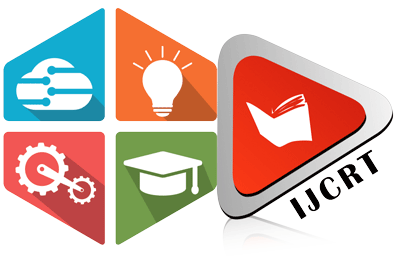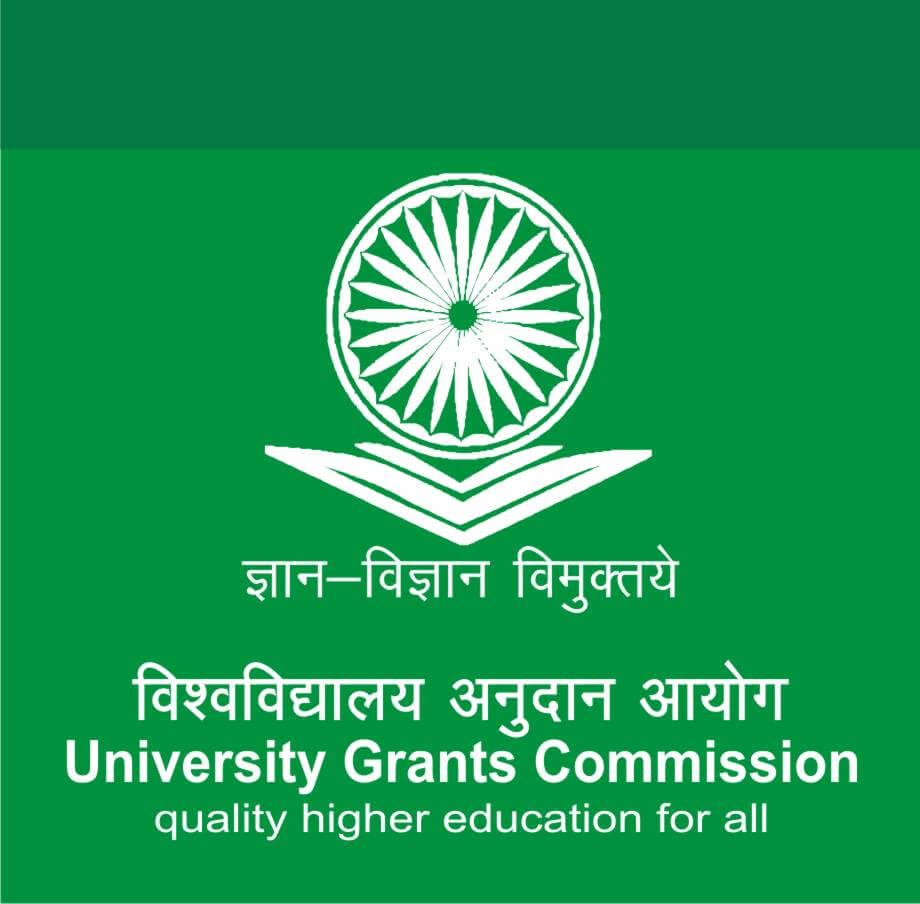INTERNATIONAL JOURNAL OF CREATIVE RESEARCH THOUGHTS - IJCRT (IJCRT.ORG)
International Peer Reviewed & Refereed Journals, Open Access Journal
IJCRT Peer-Reviewed (Refereed) Journal as Per New UGC Rules.
ISSN Approved Journal No: 2320-2882 | Impact factor: 7.97 | ESTD Year: 2013
Call For Paper - Volume 13 | Issue 10 | Month- October 2025
Scholarly open access journals, Peer-reviewed, and Refereed Journals, Impact factor 7.97 (Calculate by google scholar and Semantic Scholar | AI-Powered Research Tool) , Multidisciplinary, Monthly, Indexing in all major database & Metadata, Citation Generator, Digital Object Identifier(CrossRef DOI)
Contact Us Click Here
WhatsApp Contact Click Here
Volume 12 | Issue 3
| IJCRT Journal front page | IJCRT Journal Back Page |
Paper Title: ASSESSING DRUG UTILISATION PATTERN
Publisher Journal Name: IJCRT
Your Paper Publication Details:
Published Paper ID: - IJCRT24A3258
Register Paper ID - 254565
Title: ASSESSING DRUG UTILISATION PATTERN
Author Name(s): ANJU K R, Dr Dr. Shrutika. D. Patil, Prathamesh Kulkarni, Sahil Gharat, Avanti Kowale,Swapnali Kakulate, Vedanti Chavan
Publisher Journal name: IJCRT
Volume: 12
Issue: 3
Pages: k669-k683
Year: March 2024
Downloads: 200
Abstract
The World Health Organisation defines drug utilization evaluation as the study of the social, medical, and economic effects of pharmaceutical marketing, distribution, prescription, and use in society. Our study's objective is to examine the drug use patterns of a pediatric patient population in a hospital using the World Health Organization prescription indicators. Drug usage studies are one possible instrument for assessing the quality of the healthcare system. Drug Utilization Studies are therefore carried out to encourage drug usage in communities reasonably. This paper's primary goal is to enlighten readers about the sensible use of medication in outpatient and inpatient departments, with a focus on drug utilization evaluation. Additionally, it raises awareness among academicians, researchers, chemists, nurses, and healthcare professionals about how to lessen the irrationality of pharmaceuticals. The method used to compile this review information is gathered from websites, Google Scholar, PubMed, Research Gate, Wiley Online Library, and Elsevier.
Licence: creative commons attribution 4.0
License
Keywords
Drug utilization, Polypharmacy, Anti-microbial, Prescriptions.
License
Paper Title: FORMULATION AND EVALUATION OF HERBAL MEDICATED TEA
Publisher Journal Name: IJCRT
Your Paper Publication Details:
Published Paper ID: - IJCRT24A3257
Register Paper ID - 254387
Title: FORMULATION AND EVALUATION OF HERBAL MEDICATED TEA
Author Name(s): Sk Merajul Islam, Kanchan Singh
Publisher Journal name: IJCRT
Volume: 12
Issue: 3
Pages: k659-k668
Year: March 2024
Downloads: 220
Abstract
Herbal tea, composed of various herbs derived from leaves, seeds, and roots of different plants, is often misunderstood as being sourced from traditional tea plants. In reality, these concoctions are better described as "tisanes." There exists a diverse array of tisanes, each renowned for its therapeutic attributes. Some are prized for their invigorating qualities, aiding in relaxation, alleviating digestive issues, and bolstering the immune system. Among the well-known herbal teas are black herbal tea, herbal green tea, herbal chamomile, herbal ginger, herbal ginseng, peppermint, and cinnamon. Certain herbal teas possess potent healing properties; for instance, astragalus, a Chinese herb, boasts antimicrobial and anti-inflammatory effects, offering support to individuals with conditions like HIV and AIDS. While scientists continue to explore and confirm the health advantages of consuming herbal teas, they have found little evidence of harm associated with their consumption.
Licence: creative commons attribution 4.0
License
Keywords
Camellia Sinensis, tisanes, Historic herbal remedy, Modern day discoveries, medical benefits, ailments, benefits, drawbacks.
License
Paper Title: Health Seeking Behaviours Among Koya Tribe Women - A Review
Publisher Journal Name: IJCRT
Your Paper Publication Details:
Published Paper ID: - IJCRT24A3256
Register Paper ID - 254651
Title: HEALTH SEEKING BEHAVIOURS AMONG KOYA TRIBE WOMEN - A REVIEW
Author Name(s): Bathini Vani
Publisher Journal name: IJCRT
Volume: 12
Issue: 3
Pages: k651-k658
Year: March 2024
Downloads: 204
Abstract
In India, approximately 8.6% of the population falls under the category of "scheduled tribes," spread across 705 districts nationwide. Among these, tribal communities hold significant presence in states like Andhra Pradesh, Chhattisgarh, Gujarat, Jharkhand, Madhya Pradesh, Maharashtra, Odisha, Telangana, West Bengal, the Northeastern states, as well as the Andaman and Nicobar Islands. This study delves into the health-seeking behaviors of Koya tribe women, an indigenous group residing across various regions of India. Despite playing crucial roles in familial and societal well-being, the healthcare practices of Koya women have received limited exploration. Employing a mixed-methods approach involving qualitative interviews and quantitative surveys, this research investigates the determinants influencing health-seeking behaviors among Koya women. Factors such as cultural norms, traditional beliefs, socio-economic status, and accessibility to healthcare facilities are analyzed. The findings unveil a complex interaction between traditional healing methods and the utilization of modern healthcare services among Koya women. While traditional remedies and spiritual practices remain significant in health management, there's an increasing acceptance of modern healthcare services within the community. However, challenges like restricted access to healthcare facilities, financial limitations, and cultural preferences significantly influence the healthcare-seeking decisions of Koya women. The study emphasizes the necessity for culturally sensitive interventions to bridge the gap between traditional and modern healthcare systems. Through collaboration with community leaders and stakeholders, policymakers and healthcare providers can devise targeted strategies to enhance healthcare accessibility and promote well-being among Koya tribe women. This research contributes to a deeper comprehension of healthcare dynamics within indigenous communities, advocating for context-specific approaches to effectively address healthcare disparities
Licence: creative commons attribution 4.0
License
Keywords
Traditional Medicine, Tribal population, Health seeking behavior, Health seeking behavior of tribal population.
License
Paper Title: GROWING USAGE OF INFLUENCER MARKETING AMONG BRANDS
Publisher Journal Name: IJCRT
Your Paper Publication Details:
Published Paper ID: - IJCRT24A3255
Register Paper ID - 254794
Title: GROWING USAGE OF INFLUENCER MARKETING AMONG BRANDS
Author Name(s): Kishan Tibrewal, Ms.Sabeeha Fatima
Publisher Journal name: IJCRT
Volume: 12
Issue: 3
Pages: k642-k650
Year: March 2024
Downloads: 167
Abstract
In recent years, influencer marketing has emerged as a dynamic and impactful strategy for brands seeking to connect with their target audiences in a more authentic and engaging manner. This paper examines the factors driving the increasing adoption of influencer marketing by brands across diverse industries. Through a comprehensive review of existing literature, as well as analysis of current trends and case studies, this research elucidates the various benefits that influencer marketing offers to brands, including enhanced brand awareness, credibility, and audience engagement. Additionally, this paper delves into the evolving landscape of social media platforms and their role in facilitating influencer-brand collaborations.
Licence: creative commons attribution 4.0
License
Keywords
GROWING USAGE OF INFLUENCER MARKETING AMONG BRANDS
License
Paper Title: Design and Shape Optimization of Footover Bridge
Publisher Journal Name: IJCRT
Your Paper Publication Details:
Published Paper ID: - IJCRT24A3254
Register Paper ID - 254758
Title: DESIGN AND SHAPE OPTIMIZATION OF FOOTOVER BRIDGE
Author Name(s): Aditya Gaikwad, Sanket Saste, Samarth Waghmare, K. H. Ghorpade
Publisher Journal name: IJCRT
Volume: 12
Issue: 3
Pages: k636-k641
Year: March 2024
Downloads: 177
Abstract
This project revolves around the conceptualization, examination, and optimization of a pedestrian bridge. The focus here is on designing an overhead pedestrian bridge in locations where traffic volume surpasses 1500 vehicles or where a significant number of accidents occur. The primary objective is to alleviate conflicts between pedestrians and motor vehicles. In areas such as those in front of schools, colleges, offices, and other public spaces where pedestrians, particularly students, frequently traverse the road, the hourly traffic exceeds 1500 vehicles on average. Navigating these busy roadways by foot not only poses a challenge but also carries inherent risks. With this context in mind, the project aims to create an aesthetically pleasing pedestrian bridge at key intersections in front of areas with high pedestrian footfall. This initiative intends to relieve traffic congestion and minimize delays on the highway, while also enhancing safety by mitigating conflicts between pedestrians and motor vehicles.
Licence: creative commons attribution 4.0
License
Keywords
design, accidents, analysis, shape optimization, pedestrian bridge, pedestrian safety, high traffic volume.
License
Paper Title: Prediction of nutrients (N.P.k) in soil using IOT
Publisher Journal Name: IJCRT
Your Paper Publication Details:
Published Paper ID: - IJCRT24A3253
Register Paper ID - 254788
Title: PREDICTION OF NUTRIENTS (N.P.K) IN SOIL USING IOT
Author Name(s): Nupur Balasaheb Autade, Sunita V Mahale, Shivprasad Bharat Vishwanathwar, Vivek walmik pathade
Publisher Journal name: IJCRT
Volume: 12
Issue: 3
Pages: k628-k635
Year: March 2024
Downloads: 165
Abstract
Soil fertility is an important factor in assessing the quality of the soil since it shows how well the soil can support plant growth in agriculture.The quantity of nutrients in the soil can be quickly determined by using an Arduino board equipped with a soil sensor. The nutrient content of the soil can be quickly determined with an ESP32 equipped with a soil sensor. It is widely accepted that nitrogen, phosphorous, and potassium are essential constituents of nutrient sources.These elements should be measured to determine how much more nutrient content needs to be added to the soil to increase crop fertility.Soil fertility can be established through NPK sensors. By examining data on soil nutrient concentrations, we may determine whether the soil used to support plant production is rich in nutrients or lacking in them. There are several approaches to use a mass spectrogram or sensing element to find out how many nutrients are in the soil samples.However, with data only 60-70% genuine, the spectrum analysis approach is laborious.Due to a scarcity of data, a detailed comparison between the spectrum analysis approach and conventional wet chemistry procedures is required to ascertain the accuracy of the products. To detect soil nitrogen, phosphorus, and potassium, a soil NPK sensor should be used. Along with the application of a cheap, quick, straightforward, elevated, and portable soil NPK sensor. The plus side over a traditional detection method is the extremely short observation times required to gather exact data.This study compares and utilises different soil nutrient levels using machine learning and the kernel density estimation algorithm. One advising technological advancement that provides rational and sensible answers to the transformation taking place in many industries is the Internet of Things (IOT).Numerous research surveys and evaluations have been conducted, and a variety of methods have been used to apply IOT technology in agronomical fields.When it comes to quickly detecting plant health issues so that appropriate action may be taken, IOT can be very useful. It's a significant development in smart agriculture.Within this manuscript, we introduce a methodology for creating an automated framework capable of detecting crop damage in its early stages, which remain undetectable to the unaided eye. This method helps to prevent large losses in addition to saving a tonne of time and labour.The proposed method builds a recognition framework using soil-based detection devices, such as nitrogen, potassium, and phosphorus derived from plants. Sensor data is sent to the Arduino Cloud, which evaluates it and helps identify plant damage. In the years to come, the smart farming system will rely heavily on the internet of things.
Licence: creative commons attribution 4.0
License
Keywords
KERNEL DENSITY ESTIMATION, NPK SENSOR, PRECISION FARMING.
License
Paper Title: A STUDY ON THE IMPLICATIONS OF ADDICTION ON THE YOUTH OF INDIA
Publisher Journal Name: IJCRT
Your Paper Publication Details:
Published Paper ID: - IJCRT24A3252
Register Paper ID - 254792
Title: A STUDY ON THE IMPLICATIONS OF ADDICTION ON THE YOUTH OF INDIA
Author Name(s): Professor Krishna Reddy B.N., Rishika Arora, Vishal Rathi, Mohammad Humaid, Deepansh Agrawal,Tanish Jain
Publisher Journal name: IJCRT
Volume: 12
Issue: 3
Pages: k611-k627
Year: March 2024
Downloads: 220
Abstract
Addiction poses a significant public health challenge in India, impacting individuals, families, and communities across the nation. This study aims to comprehensively investigate the landscape of addiction in India, with a focus on understanding its prevalence, patterns, and effective interventions. The method involves incorporating surveys with a diverse sample of participants from various regions and demographic backgrounds. The study aims to collect date on the prevalence of addiction to substances, behaviours, and technology, along with associated risk factors. Conducting interviews to gain insights into the live experiences of individuals affected by addiction and the cultural and societal factors influencing addiction behaviours. The findings reveal complex and evolving picture of addiction in India. Substance abuse, involving alcohol and tobacco, remains a prevalent concern, but emerging trends such as internet addiction and gambling are on the rise, particularly among the youth. Socioeconomic factors, cultural norms, and peer influence were identified as key contributors to addiction vulnerability. Stigma and limited access to treatment and support services were identified as barriers to recovery. By addressing the multifaceted nature of addiction in India, healthcare professionals can develop evidence-based strategies to mitigate its impact on individuals and society.
Licence: creative commons attribution 4.0
License
Keywords
Addiction, India, Prevalence, Patterns, Intervention, Substance Abuse, Internet Addiction, Stigma, Youth, Survey
License
Paper Title: Significance of Statistics and Mathematics in Artificial Intelligence, Machine Learning, Data Analysis and Data Science
Publisher Journal Name: IJCRT
Your Paper Publication Details:
Published Paper ID: - IJCRT24A3251
Register Paper ID - 254679
Title: SIGNIFICANCE OF STATISTICS AND MATHEMATICS IN ARTIFICIAL INTELLIGENCE, MACHINE LEARNING, DATA ANALYSIS AND DATA SCIENCE
Author Name(s): Mrs. Gore (Jagtap) Jyotsana Shukracharya, Mr. Gore Shukracharya Sampatti
Publisher Journal name: IJCRT
Volume: 12
Issue: 3
Pages: k603-k610
Year: March 2024
Downloads: 171
Abstract
Statistics and mathematics assist as the keystone of artificial intelligence, machine learning, data analysis and data science. Probability theory, linear algebra and optimization are fundamental enabling techniques for understanding uncertainty, manipulating data and optimizing algorithms. In AI and ML, probability, linear algebra and optimization techniques are support models, while in data analysis and data science, statistical methods facilitate descriptive, inferential analyses, regression and time series analysis. Collectively, these disciplines provide the theoretical framework and analytical tools essential for extracting insights, building models and making data-driven decisions. Statistics is a branch of mathematics that deals with collection, analysis, interpretation, presentation and organization of data. Statistical methods are used to analyze and interpret data to make inferences about populations from samples. Statistical methods are widely used in AI to improve performance and accuracy. A key component of data science is math. Mathematics contains various branches like algebra, geometry, Trigonometry, Calculus, Statistics and Probability. Developing machine learning algorithms requires an understanding of concepts from statistics, probability theory, calculus and linear algebra. These algorithms recognize patterns, forecast outcomes and categorize data using mathematical equations and functions. All Machine Learning algorithms are built on a mathematical foundation. These algorithms assist us in extracting information from the data. We write these algorithms in a programming language (typically libraries are available) and the computer machine that executes them on the data set seems to be intelligent, thus the title Artificial Intelligence. Machine learning is an integral part of artificial intelligence, which is used to design algorithms based on the data trends and historical relationships between data. Machine learning (ML) is defined as a discipline of artificial intelligence (AI) that provides machines the ability to automatically learn from data and past experiences to identify patterns and make predictions with minimal human intervention. This paper aims to explore role of the Statistics and Mathematics in Artificial Intelligence, Machine Learning, Data Analysis and Data Science. Also some factors are discussed like challenges, limitations and future directions.
Licence: creative commons attribution 4.0
License
Keywords
Statistics, Mathematics Artificial Intelligence (AI), Machine Learning (ML), Data Analysis (DA), Data Science (DS), Optimization, Probability.
License
Paper Title: Narratives in Ao Folk Songs and Proverbs: A Repository of People Stories.
Publisher Journal Name: IJCRT
Your Paper Publication Details:
Published Paper ID: - IJCRT24A3250
Register Paper ID - 254781
Title: NARRATIVES IN AO FOLK SONGS AND PROVERBS: A REPOSITORY OF PEOPLE STORIES.
Author Name(s): Dr. Sentinaro
Publisher Journal name: IJCRT
Volume: 12
Issue: 3
Pages: k595-k602
Year: March 2024
Downloads: 183
Abstract
Oral tradition expresses self-identity and upholds social organisations, religious practices, ethical values and customary laws of a certain group of people. Orality is a complex phenomenon which configures its own ways and means of expression and transmission. It is that great highway of information where an existing intersection of ideas, forms and styles takes place at different levels, creating processes and dialogues with inter-linkages between form and content, genre and theme, visual and aural, local and regional, traditional and contemporary. The oral literature or the traditional literature, transmitted to us from generation to generation, represents the most valid and appropriate expression of religions, mythological, historical and cultural milieu of the rural folk. It was the only form of literature that existed among the tribal society as a vehicle of expression and share knowledge and stories of an oral tribe in the form of proverbs, sayings, folk songs which held the community together. Narratology is the art of narration through which folk tales, proverbs, myths, etc. are conveyed from one generation to the other orally. Narratives function as markers of ethnic or cultural boundaries. They also perceive through narration, the changes and loss of images in their society and their cultural differences. Thus all narratives are expressions of a given culture, and represent and transport its norms and values. The telling of stories is such a pervasive aspect of our environment that we sometimes forget that stories provide the initial and continuing means for shaping our experience. Stories are the repository of our collective wisdom about the world of social and cultural behaviour ; they are the key mediating structures for our encounters with reality.All forms of narration are a reflection of culture. Folktales, proverbs, sayings and all kinds of everyday narration are expressions or representations of the cultural system of a people of its worldview, its value orientations, attitudes and habits, its customs and its history. Ordinary everyday communication is usually interspersed with short narrative forms like saying or proverbs, anecdotes, quips, stories, etc.With oral narratives, there are no reference books. Hardly anything is written down or recorded. The present study will concentrate on a small part of a vast oral literature of the Ao Nagas, a major tribe of Nagaland, The Aos have a rich culture which is reflected in their oral literature like the use of proverbs, sayings, songs and folklores. Use of proverbs in everyday life and daily conversation is commonly practiced among the Aos. Some of the most popular proverbs used among the people are discussed here which speak about their culture and traditional wisdom. In the Ao society, many elderly persons converse with a song. Each occasion calls for the appropriate song. In the context of the traditional Ao society, songs and folklores are the major components of their discourse.Songs and folklores are major components of a non-material culture specially in the context of a traditional society. The past history of civilisation in the context of modern society can be understood better through study of oral traditions like folk songs and use of folk elements like proverbs. . It is important to preserve this oral tradition for the retention and continuity of one's culture and tradition.
Licence: creative commons attribution 4.0
License
Keywords
Oral tradition, Songs, proverbs, narratology, traditional society, culture
License
Paper Title: Smart Contract Allocation System using Blockchain with Auction System
Publisher Journal Name: IJCRT
Your Paper Publication Details:
Published Paper ID: - IJCRT24A3249
Register Paper ID - 254787
Title: SMART CONTRACT ALLOCATION SYSTEM USING BLOCKCHAIN WITH AUCTION SYSTEM
Author Name(s): Naziya M.Hanif Pathan, Nagnath S Bagal, Ganesh S. Wayal
Publisher Journal name: IJCRT
Volume: 12
Issue: 3
Pages: k589-k594
Year: March 2024
Downloads: 197
Abstract
Nick Szabo first used the phrase "smart contract" in 1994 to describe a software that may be programmed to carry out any task upon the satisfaction of certain predetermined criteria. Nick Szabo first used the phrase "smart contract" in 1994 to describe a software that may be programmed to carry out any task upon the satisfaction of certain predetermined criteria. Globally, public sector organizations and governments are always exploring innovative approaches to stay abreast of technological developments in order to attain cost optimization, work efficiency, and smart governance. One such method that has drawn interest from governments all around the world in recent years is blockchain technology. The blockchain can expand to another province thanks to low-cost methods, increased traceability, and enhanced security. Governments typically award contracts to private companies for various projects. Different rivals attempt to keep an eye on one other's tender values during this procedure in an effort to secure the contract. In order to approve the deal in recognition of a particular third party, the callous government officials also accept large bribes. In this initiative, we want to use blockchain technology to create a transparent and safe mechanism for allocating government contracts. Government documents that are very vulnerable to manipulation are stored on blockchain, which is a reliable and immutable data format.
Licence: creative commons attribution 4.0
License
Keywords
Blockchain, Edge Computing, Smart Contracts, Contract Allocation,Edge Computing,Bid,Auction System,Firebase
License
Paper Title: Documentation of Ethno medicinal plants used in tribes of Tapi District, South Gujarat.
Publisher Journal Name: IJCRT
Your Paper Publication Details:
Published Paper ID: - IJCRT24A3248
Register Paper ID - 254791
Title: DOCUMENTATION OF ETHNO MEDICINAL PLANTS USED IN TRIBES OF TAPI DISTRICT, SOUTH GUJARAT.
Author Name(s): Dr. Prajapati Gopee G, Dr. Dinesh Kumar Singh, Dr.Rajeshree Patel
Publisher Journal name: IJCRT
Volume: 12
Issue: 3
Pages: k584-k588
Year: March 2024
Downloads: 182
Abstract
Information about the identification of various medicinal plants and their uses has been obtained during the visit of Tapi district during 2020-2021.Tapi district was formed on October 2, 2007, with the separate of some taluka of Surat district, which is in the South of Gujarat state. Whose headquarters are Vyara. Tapi district is located between 21.05o North latitude and 73.20o East longitude. It has an area of about 3434.64 sq.km. This district lies in the east between Maharashtra state, Surat district on the west, Dang & Navsari on the South & Narmada district on the north, Medicinal plants found in various forests of Tapidistrict and used by tribal people are Shown. The total forest area of Tapi district is 90760.3235 ha. Songadh - Uki area in this district has thicker forests. The calculation and uses of 107 species of medicinal plants belonging to more than 27 families are shown during the visit. Of which 15 medicinal plants are mentioned here. These include species of tree(36), shrubs(26), herbs(30), Climber(10) & tubers(5) etc. This includes most of the plants of the family Fabaceae and Malvaceae.
Licence: creative commons attribution 4.0
License
Keywords
Ethno medicinal plants, Tribal, Traditional medicines, Tapi District, Gujarat
License
Paper Title: DATA SCEINCE IN AGRICULTURE : A REVIEW
Publisher Journal Name: IJCRT
Your Paper Publication Details:
Published Paper ID: - IJCRT24A3247
Register Paper ID - 254399
Title: DATA SCEINCE IN AGRICULTURE : A REVIEW
Author Name(s): SUNDARI B
Publisher Journal name: IJCRT
Volume: 12
Issue: 3
Pages: k581-k583
Year: March 2024
Downloads: 179
Abstract
Abstract: -Data analytics has already brought about a great deal of change in the world by bringing new ideas to improve decision-making, analyse patterns, and spot possibilities. The Internet of Things (IoT), artificial intelligence, and machine learning.The current situation of applying traditional approaches in practically all sectors is being revolutionised and changed by intelligence and big data. In India, agriculture employs about 42% of the labour force but only makes up 14% of the country's GDP (gross domestic product). The use of data analytics in agriculture has been the subject of extensive research. Nevertheless, integrating these technologies is not without its difficulties. First off, farmers are not usually aware of these technologies, and secondly, there is a lot of variety in the data regarding weather changes, diseases, insect damage, harvest and production, etc.
Licence: creative commons attribution 4.0
License
Keywords
machine learning , artificial intelligence, internat of things (IOT)
License
Paper Title: A Comparative Study Of KIA Motors' ICE Car Models Versus EV Car Models From a Public Perspective & Preferences In Erode District.
Publisher Journal Name: IJCRT
Your Paper Publication Details:
Published Paper ID: - IJCRT24A3246
Register Paper ID - 254545
Title: A COMPARATIVE STUDY OF KIA MOTORS' ICE CAR MODELS VERSUS EV CAR MODELS FROM A PUBLIC PERSPECTIVE & PREFERENCES IN ERODE DISTRICT.
Author Name(s): Dr.G.Sangeetha, Mr. Gowtham.M
Publisher Journal name: IJCRT
Volume: 12
Issue: 3
Pages: k573-k580
Year: March 2024
Downloads: 151
Abstract
This research investigates public perceptions and preferences concerning KIA Motors' Internal Combustion Engine (ICE) and Electric Vehicle (EV) car models in Erode district. Employing a comprehensive methodology, including descriptive, co relational, and explanatory research designs, data is gathered from 200 respondents using questionnaire surveys. Through statistical analyses, the study explores factors such as performance, affordability, environmental impact, and charging infrastructure to discern public attitudes towards ICE and EV models. The findings aim to inform KIA Motors' marketing strategies and product offerings, facilitating the transition to sustainable mobility solutions while addressing local preferences and expectations.
Licence: creative commons attribution 4.0
License
Keywords
KIA Motors, ICE (Internal Combustion Engine) cars, EV (Electric Vehicle) cars, Comparative study, Public perspective, Preferences, Erode District, Environmental awareness.
License
Paper Title: To study the impact of advertising on consumer purchase decision process
Publisher Journal Name: IJCRT
Your Paper Publication Details:
Published Paper ID: - IJCRT24A3245
Register Paper ID - 254581
Title: TO STUDY THE IMPACT OF ADVERTISING ON CONSUMER PURCHASE DECISION PROCESS
Author Name(s): Kritika Gupta, Dr. Komal Malik
Publisher Journal name: IJCRT
Volume: 12
Issue: 3
Pages: k568-k572
Year: March 2024
Downloads: 211
Abstract
Advertising plays a significant role in influencing consumer purchase decisions across various industries. This research paper aims to examine the intricate relationship between advertising and the consumer purchase decision process. By analysing existing literature and conducting empirical studies, this paper explores how advertising affects different stages of the consumer decision-making process, including awareness, consideration, purchase intention, and postpurchase behaviour. The findings of this research contribute to a deeper understanding of the dynamics between advertising and consumer behaviour, providing valuable insights for marketers and advertisers to develop effective advertising strategies.
Licence: creative commons attribution 4.0
License
Keywords
Consumer Purchase Decisions, Advertising, Purchase Intention, Post-Purchase Behaviour, Consumer Behaviour
License
Paper Title: Classifying Leaf disease severity using Trasformer based Explainable Artificial Intelligence
Publisher Journal Name: IJCRT
Your Paper Publication Details:
Published Paper ID: - IJCRT24A3244
Register Paper ID - 254656
Title: CLASSIFYING LEAF DISEASE SEVERITY USING TRASFORMER BASED EXPLAINABLE ARTIFICIAL INTELLIGENCE
Author Name(s): Navyashree K S, Ravi kiran K V
Publisher Journal name: IJCRT
Volume: 12
Issue: 3
Pages: k542-k567
Year: March 2024
Downloads: 201
Abstract
Agribusiness serves as the primary livelihood for approximately 70% of rural residents, with India ranking as the world's second-largest producer of various agricultural commodities. The agriculture industry significantly impacts India's gross domestic product (GDP). Technological advancements play a significant influence in enhancing agricultural practices, enabling the prediction of considerations include soil quality, crop health, and disease detection to optimize crop yields.Detecting and addressing plant leaf diseases early is paramount to prevent their spread and enhance overall yield. This research focuses on plant leaf disease detection and stage classification based on infection severity. The approach involves leveraging deep learning models, specifically YOLOv5 for disease detection, followed by background removal using the U2-Net architecture. Subsequently, a vision transformer (ViT) is employed for stage classification, categorizing severity into low, moderate, and high.To combat leaf diseases effectively, a recommendation solution is proposed. YOLOv5 is trained using open-source datasets, namely PlantDoc and Plantvillage. This study predominantly concentrates on apple leaf disease classification. Results indicate that YOLOv5 achieves a maximum F1-score of 0.57 at a confidence score of 0.2, while the vision transformer, when applied with and without background images, attains F1-scores of 0.758 and 0.908, respectively.
Licence: creative commons attribution 4.0
License
Keywords
YOLOv5 (You Only Look Once Version 5),ViT (Vision Transformer),CADS (Computer-Aided Disease Detection System),RPN (Region Proposal Network),NLP (Natural Language Processing),XAI (Explainable Artificial Intelligence),DCNN (Deep Convolutional Neural Network).
License
Paper Title: Farming Activities in Mining Regions of Odisha- A Case Analysis of Koraput District
Publisher Journal Name: IJCRT
Your Paper Publication Details:
Published Paper ID: - IJCRT24A3243
Register Paper ID - 254668
Title: FARMING ACTIVITIES IN MINING REGIONS OF ODISHA- A CASE ANALYSIS OF KORAPUT DISTRICT
Author Name(s): MANISHA GUPTA, DR. MINATI SAHOO
Publisher Journal name: IJCRT
Volume: 12
Issue: 3
Pages: k538-k541
Year: March 2024
Downloads: 176
Abstract
The mining sector although leads to economic growth and development in society, also leads to huge environmental degradation. It also affects the farming activities to a greater extent. This study attempts to analyse the influence of bauxite mining on the agricultural activities of the mining and non-mining regions in the Koraput district of Odisha. The study is based on the primary data. It was observed that there was low productivity of crops in the mining region, producers could not also produce and sell vegetables in the market, whereas the producers in the non-mining region also earned by selling the vegetables. There is a need for policy actions to reduce the influence of mining activity on farming activities and ensure sustainable development.
Licence: creative commons attribution 4.0
License
Keywords
Bauxite mining, agricultural activity, productivity, yield
License
Paper Title: Reimagining Draupadi: A Feminist Perspective on 'The Palace of Illusions' by Chitra Banerjee Divakaruni
Publisher Journal Name: IJCRT
Your Paper Publication Details:
Published Paper ID: - IJCRT24A3242
Register Paper ID - 254718
Title: REIMAGINING DRAUPADI: A FEMINIST PERSPECTIVE ON 'THE PALACE OF ILLUSIONS' BY CHITRA BANERJEE DIVAKARUNI
Author Name(s): Atreyee Mukherjee
Publisher Journal name: IJCRT
Volume: 12
Issue: 3
Pages: k531-k537
Year: March 2024
Downloads: 322
Abstract
This research paper analyzes The Palace of Illusions by Chitra Banerjee Divakaruni, a novel that challenges the epic's usually patriarchal representation of women by reimagining the Mahabharata from Draupadi's point of view. The study examines Draupadi's persona as a strong, independent woman who opposes and questions the social mores of her deeply patriarchal society. Through an examination of Divakaruni's feminist, cultural, and psychoanalytic interpretations of the Mahabharata, this essay makes the case that the author portrays Draupadi as a feminist symbol who triumphs over the constraints of a society controlled by men. The book gives the female characters of the epic a fresh voice by portraying Draupadi as a brave ruler and sharing her ideas and experiences with the reader. To provide light on Draupadi's hardships, sacrifices, and victories, the research delves deeper into her ties with other figures, such as Lord Krishna, Kunti (the mother of the Pandavas), and her five spouses. This study seeks to demonstrate how Divakaruni's reinterpretation of Draupadi's character acts as a potent representation of feminism and opposes the traditional patriarchal conventions of the Indian society depicted in the original epic through a thorough analysis of the novel.
Licence: creative commons attribution 4.0
License
Keywords
Feminism, Tradition, Patriarchy, Pandavas, Draupadi, Chastity, Polyandry,
License
Paper Title: MICE TOURISM PROMOTION AND CHALLENGES IN PATNITOP IN JAMMU AND KASHMIR AT UNION TERRITORY
Publisher Journal Name: IJCRT
Your Paper Publication Details:
Published Paper ID: - IJCRT24A3241
Register Paper ID - 254708
Title: MICE TOURISM PROMOTION AND CHALLENGES IN PATNITOP IN JAMMU AND KASHMIR AT UNION TERRITORY
Author Name(s): Mohit kumar
Publisher Journal name: IJCRT
Volume: 12
Issue: 3
Pages: k515-k530
Year: March 2024
Downloads: 201
Abstract
Tourism is not merely an activity for entertainment. It is an enriching and energizing activity. Jammu and Kashmir is among the most popular tourist attractions in the Himalayas in India. The Valley is abundant with many tourism-related resources. A suitable tourist strategy is necessary for the sustainable utilization of these tourism resources. In addition to examining government strategy for the development and growth of tourism in the Kashmir area, the purpose of the current study is to analyze tourism potentials and visitor flow in Kashmir. To achieve the study's aims, desk research methodology has been applied. Based on the findings, the tourism ministry of the Jammu and Kashmir government has drafted a tourist strategy. The proposed tourism policy includes promotional and development strategies for existing and new kinds of tourism, adhering to the sustainable approach, developing tourist infrastructure and human resources, guaranteeing safety and security, and promoting tourism education inside the state. Additionally, the state government is collaborating with various other interested organizations to promote ecotourism and unusual tourist spots. It has been reported that Jammu and Kashmir is replete in tourist sites, allowing travel companies to provide a variety of trip packages to visitors. For growth, tourism is the right vehicle. Tourism is an important industry in the state and is considered as a multi segmented industry, therefore provides different types of jobs like hotel managers, receptionists, guides, tour operators, travel agents, photographers and many other jobs which are required to strengthen the tourism. Kashmir is an area with great tourism potential and provides immense business opportunities for the Kashmir region. The present paper attempts to examine the problems and prospects of tourism in Kashmir in order to formulate the guideline for future tourism in the valley. It indicates that tourism is still in the early phase of development and that the valley has great potential.
Licence: creative commons attribution 4.0
License
Keywords
Key words: Right vehicles, Multi-segmented industries, Tourism potential, Business opportunity. Kashmir Tourism, Tourism Development, Tourism Policy
License
Paper Title: Examining the Disruption and Development of Financial Markets and Management by Artificial Intelligence (AI)
Publisher Journal Name: IJCRT
Your Paper Publication Details:
Published Paper ID: - IJCRT24A3240
Register Paper ID - 254427
Title: EXAMINING THE DISRUPTION AND DEVELOPMENT OF FINANCIAL MARKETS AND MANAGEMENT BY ARTIFICIAL INTELLIGENCE (AI)
Author Name(s): Darshan Surendra, Samriddhi Dutta, Atmika Satpathy, Suganth k, Shakti Dharan
Publisher Journal name: IJCRT
Volume: 12
Issue: 3
Pages: k503-k514
Year: March 2024
Downloads: 280
Abstract
The evolutionary progression of artificial intelligence (AI) in the global financial domain depicts a trajectory of transformative advancements accompanied by noteworthy discoveries and discernible implications. Specifically, the Asia Pacific region emerges as a pivotal hub for the burgeoning growth of AI, propelled by substantial investments and widespread adoption across diverse industries encompassing automotive, healthcare, retail, and food and beverages. Forecasts signal an exceptional surge in the worldwide AI market, catapulting from a valuation of USD 454.12 billion in 2022 to an astounding USD 2,575.16 billion by 2032, demonstrating a commendable compound annual growth rate (CAGR) of 19% spanning from 2023 to 2032. However, this upward force is coupled with significant economic considerations. The assimilation of AI initiates a shift in occupational roles, necessitating the augmentation of skill sets within the workforce while potentially precipitating job displacement. Comprehensive surveys conducted by esteemed entities, such as the World Economic Forum, indicate the potential replacement of 9% of financial services jobs with AI by 2030, concurrently envisaging a robust 19% workforce expansion in FinTech enterprises. This transition is expected to impact sectors like investment management, predicting a prospective reduction of 10% in employment numbers within five years and a substantial 24% decline over a decade. Concerns regarding algorithmic biases, transparency, and ethical implications necessitate meticulous navigation. Concurrently, a diverse array of global financial institutions showcase multifaceted applications of AI. From J.P. Morgan Chase and Goldman Sachs employing AI for fraud detection and risk assessment to forward-thinking entities like Trading Technologies and Sigmoidal leveraging AI for market analysis and asset allocation, respectively, these instances underscore AI's extensive utility in revolutionising conventional financial practices. However, the rapid proliferation of AI in finance also presents inherent risks. Limitations in programming codes pose a challenge in capturing the intricate dynamics of financial markets, potentially leading to inaccuracies. Furthermore, the finance sector confronts amplified virtual threats and data biases, necessitating stringent protocols against cybersecurity threats and biases perpetuated by AI's data interpretation. The intricate interplay between AI's transformative potential and associated challenges underscores the imperative need for a nuanced approach to harnessing AI's prowess within the financial landscape.
Licence: creative commons attribution 4.0
License
Keywords
Artificial Intelligence, AI, Financial Markets, Transformation, Impact Analysis, Algorithmic Biases, Market Volatility, Case Studies, Ethical Considerations, Financial Institutions, Investor Insights, Policy Implications, Job Displacement, and Technological Disruption.
License
Paper Title: Review on Plant Disease Recognition From Leaf Images
Publisher Journal Name: IJCRT
Your Paper Publication Details:
Published Paper ID: - IJCRT24A3239
Register Paper ID - 254774
Title: REVIEW ON PLANT DISEASE RECOGNITION FROM LEAF IMAGES
Author Name(s): Shital Kokate, Naganath Bagal, Ganesh Wayal
Publisher Journal name: IJCRT
Volume: 12
Issue: 3
Pages: k498-k502
Year: March 2024
Downloads: 152
Abstract
Determining the crucial aspects that impact crop output or plant development is made possible by the identification of plant diseases, making this a significant area of research. According to recent studies, 14.1% of plants perish from plant disease. It's a significant issue that could affect people's health as well. The greatest number of plants can be utilised to create medications. This implies that it's critical to identify plant illnesses early on.
Licence: creative commons attribution 4.0
License
Keywords
CNN, VGG16, Resnet34, Flask, plant disease
License
About IJCRT
The International Journal of Creative Research Thoughts (IJCRT) aims to explore advances in research pertaining to applied, theoretical and experimental Technological studies. The goal is to promote scientific information interchange between researchers, developers, engineers, students, and practitioners working in and around the world.
Indexing In Google Scholar, ResearcherID Thomson Reuters, Mendeley : reference manager, Academia.edu, arXiv.org, Research Gate, CiteSeerX, DocStoc, ISSUU, Scribd, and many more International Journal of Creative Research Thoughts (IJCRT) ISSN: 2320-2882 | Impact Factor: 7.97 | 7.97 impact factor and ISSN Approved. Provide DOI and Hard copy of Certificate. Low Open Access Processing Charges. 1500 INR for Indian author & 55$ for foreign International author. Call For Paper (Volume 13 | Issue 10 | Month- October 2025)
October 2025
Volume 13 | Issue 10
Last Date :
31-Oct-2025
Submit Manuscript Online Impact Factor: 7.97 Review Results : Within 02-03 Days Paper Publication : Within 02-03 Days

ISSN: 2320-2882 Impact Factor: 7.97 and ISSN APPROVED Journal Starting Year (ESTD) : 2013

ISSN: 2320-2882 Impact Factor: 7.97 and ISSN APPROVED Journal Starting Year (ESTD) : 2013

CONFERENCE PROPOSAL CONFERENCE PROCEEDINGS







































































